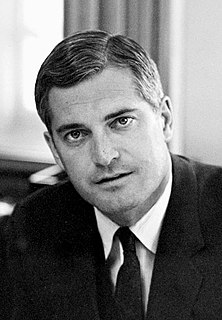A Quote by Joan Wallach Scott
We've increasingly lost that sense of community, of the notion that there is something we contribute to and benefit from that is called the common good. I think I would date the beginnings of that loss to the Reagan administration and to the notion that somehow we were all separate individuals who only ought to be interested in ourselves.
Related Quotes
I think I got from my father and my mother a sense of morality, of the do's and don't's in society; the notion that good people don't do this; good people are responsible, good people participate in community, and good people vote, good people own land. These were things I heard from my father's pulpit.
[The notion of equilibrium] is a notion which can be employed usefully in varying degrees of looseness. It is an absolutely indispensable part of the toolbag of the economist and one which he can often contribute usefully to other sciences which are occasionally apt to get lost in the trackless exfoliations of purely dynamic systems.
It's as if the whole notion of growing soil is something only lunatics would think about. But why not grow soil? Does anything make more sense than growing soil? Isn't that more important than tractors, trucks, silos, barns, county fairs and country music? Of course it is. And yet to the lion's share of American farmers, the very notion of growing soil is just plain silly.
All around the country, individuals are choosing to redefine their lives and the pursuit of happiness in ways much closer to the original notion put forth by our Founding Fathers. Their notion of the "pursuit of happiness" wasn't just about acquiring money and power, but about doing your part to add to the civic happiness of the community.
The tax upon land values is the most just and equal of all taxes. It falls only upon those who receive from society a peculiar and valuable benefit, and upon them in proportion to the benefit they receive.It is the taking by the community for the use of the community of that value which is the creation of the community. It is the application of the common property to common uses. When all rent is taken by taxation for the needs of the community, then will the equality ordained by nature be attained.
The most common objection to changes in public policy which would increase a user's control of housing at the expense of centralized institutions is that standards would be lowered as a result. The standards the objectors have in mind, however, are not something that cam be achieved with available resources, but, rather, represent the objector's own notion of what housing ought to be.
Symons remarked that the most common and unhelpful illusion plaguing those who came to see him was the idea that they ought somehow, in the normal course of events, to have intuited long before they had finished their degrees, started families, bought houses and risen to the top of law firms - what they should properly be doing with their lives. They were tormented by a residual notion of having through some error or stupidity on their part missed out on their true calling.
The parts of a machine work with a maximum of cooperativeness for a common result, but they do not form a community. If, however, they were all cognizant of the common end and all interested in it so that they regulated their specific activity in view of it, then they would form a community. But this would involve communication. Each would have to know what the other was about and would have to have some way of keeping the other informed as to his own purpose and progress.
Longing is the fullest sense of desire; it's the most deeply felt kind of desire. I think the most interesting artwork comes out of some sense of longing. It could be called dissatisfaction; it could be called distance. There are many kinds of wanting to get closer to something else, whether that is an idea, a body, a place. Longing is also one of the conditions people approach reading, visual art, or music with - it's to satisfy that sense of longing. It's part of my job, on some level, to grapple with that notion.






































